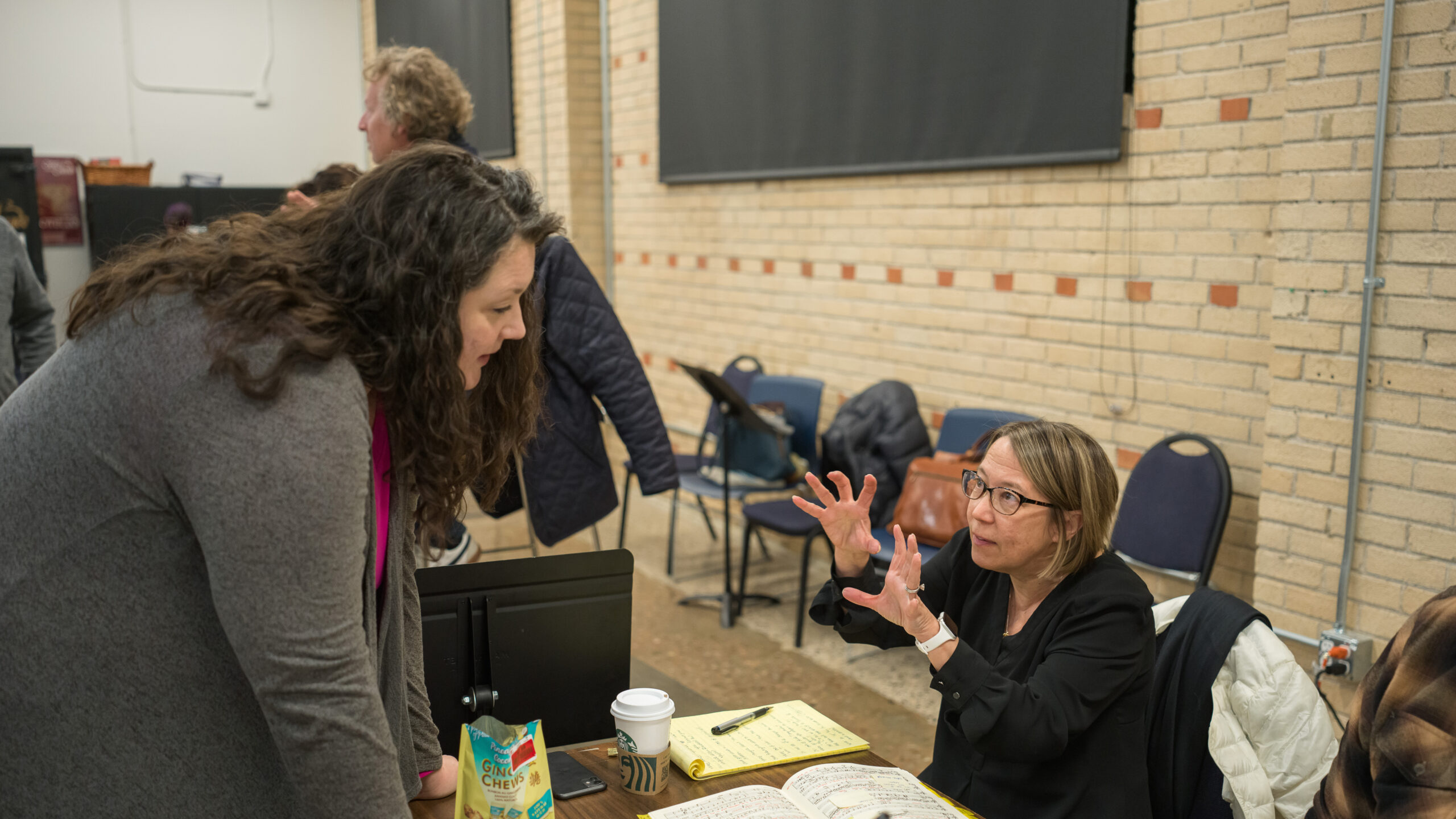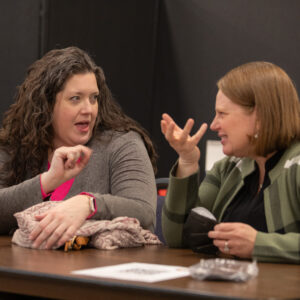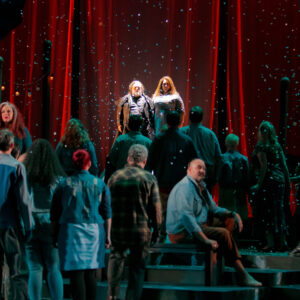The Flying Dutchman 101: Kathleen Smith Belcher, Director

The Flying Dutchman premiered over 180 years ago on January 2, 1843 at the Königliches Hoftheater in Dresden. Despite its age, this opera still has many relevant themes, including community, family, love, and sacrifice. It is up to the director to put their own spin on the opera. This time around, the role of Director Kathleen Smith Belcher is unique. She is putting on a new production of The Flying Dutchman, complete with never-before-seen sets and costumes. Explore her thoughts and interpretation of The Flying Dutchman below.
—
Inspiration for the Community

Photo: Matt Staver/Opera Colorado
I spent my summers on the Gulf Coast of Florida. There is a fishing village, Cortez, that has been in existence for generations. Decade after decade, this insular community distrusts the “snowbirds” and summer tourists but is financially dependent upon them for existence. They continue to work the seas and the nets, trying to make a viable living as commercial fisherman. It seemed to me these people probably passed down stories very much like the myth of the Dutchman for generations and superstitions around these myths have worked themselves into everyday life. Women, who for many years were expected to stay home and wait for their fathers, boyfriends, and husbands to come home after a day or several days at sea, were excluded from some of the very rituals they helped to support. These women are just as strong and salty as the men they waited for–as is Senta.
Dutchman Through a Feminist Lense

Photo: Opera Colorado/Matt Staver
When looking at The Flying Dutchman with a feminist gaze, we can see a lot of red flags. Why does Daland basically sell off his only daughter to a man he has known for five minutes? If Senta is supposedly “boy crazy,” why does she only speak of being true and faithful–“treu” in German–as opposed to mentioning being in love, or “liebe?” The Dutchman is portrayed as a figure of male authority and control while Senta is depicted as a woman who is willing to sacrifice everything for love. This power dynamic raises questions about how women are often expected to submit to male authority and the consequences of defying societal norms.
Check out the book Kathleen Smith Belcher says inspired this feminist perspective>>
I think there is nobility in Senta recognizing the pain someone else is suffering and knowing she could end that person’s pain by making a sacrifice for them. Senta’s deep faith and empathy lead her to make a very deliberate choice to end the pain and sorrow of another. If we start to look at Senta not as a “crazy-in-love” woman who is raging against her father’s will but as a giving, loving, almost Christ-like figure in her willingness to give her life to free others from their pain, we can see her in a new light and with deeper empathy.
Notes written by Kathleen Smith Belcher, Stage Director for Opera Colorado’s 2024 production of The Flying Dutchman.


